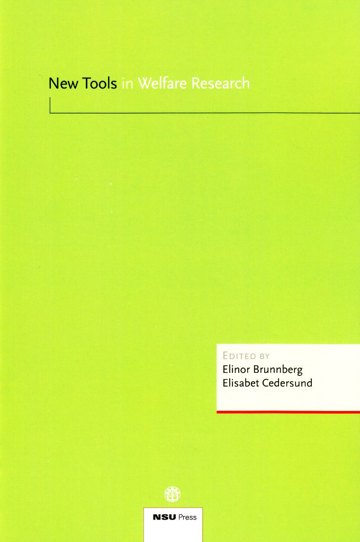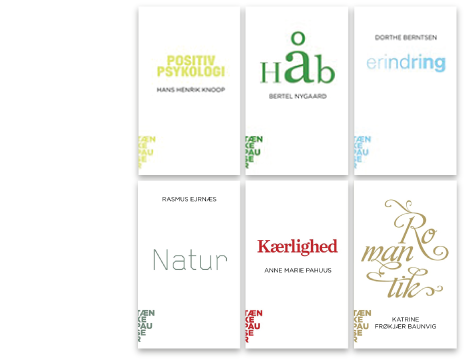
New Tools in Welfare Research
En del af fagområdet Filosofi og etik
Udsolgt fra forlaget
Redigeret af
Elinor Brunnberg og
Elisabet Cedersund
Mere om bogen
Om bogen
The anthology New Tools in Welfare Research presents various tools for qualitative and quantitative research on welfare, building on both new and established theoretical perspectives and research methods. The contributions were developed within the framework of the Nordic Summer University, and were thus influenced by different research traditions at colleges and universities in the Nordic countries.
Research tools that get people involved are described; people's own statements and experiences are utilized and interpreted on the basis of established theoretical perspectives such as phenomenology, hermeneutics, and interactionism. The research approaches presented enable people of different ages to participate in formulating the image of their living conditions. This can be done together with children, adults, or old people in different life situations. It is also shown that comparative approaches may offer new insight into the various dimensions of the welfare system as a cultural practice.
Indholdsfortegnelse
Introduction
Paradigms, theories and methods in research on men's violence in intimate relationships
Narratives from children in vulnerable situations
The child as a linking interested party in the negotiating modern family
Focus groups with creative elements, PI-interviews
Using the vignette method in comparative welfare research
How is methodological emancipation possible? Rethinking the potentials of multivariate methods for intersectional analyses
Interactive research - A practical example and a crtical assessment
Service provision in the welfare state - Care-taking, interaction and construction of meaning
Everyday lives of older people with a dementia - Studies of interaction in elder care
Policy language in the care for the aged in Japan and Sweden - Does it reflect or steer ideology?
The use of political terms and the modernisation of the welfare state
The Welfare State's 'Stepchildren'. An intersectonal perspective on ethnic relations and discrimination in Sweden
Netop udkommet
Forlaget skriver:
28 januar 2026
Forårets Bogtorsdage 2026
Til marts genoptager vi de månedlige Bogtorsdage i samarbejde med Det Kgl. Bibliotek i Aarhus. Datoerne arrangementerne frem…
25 november 2025
Årets sidste bogtorsdag!
Årets sidste bogtorsdag er nu lige på trapperne! Vær med, når vi, sammen med Det Kgl. Bibliotek, fejrer forfatterne bag vores…
29 oktober 2025
Kom til bogtorsdag d. 13. november!
Vi er nu klar med novembers bogtorsdag!Vær med når Aarhus Universitetsforlag sammen med Det Kgl. Bibliotek fejrer forfatterne…




